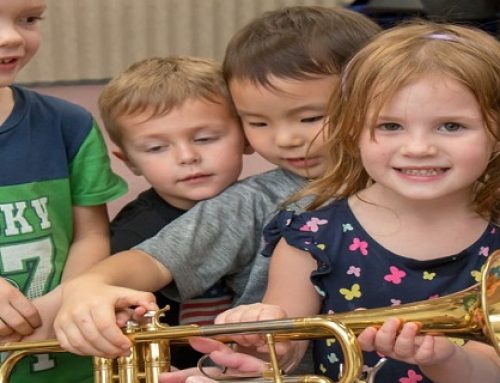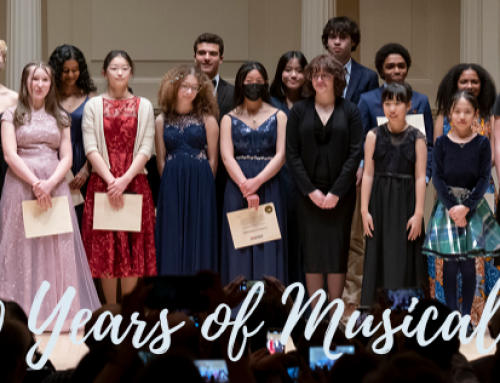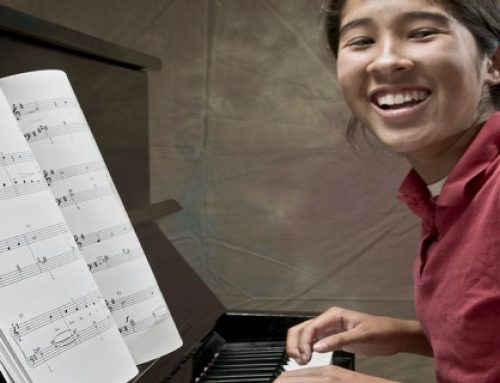Music can enrich your child’s life in so many ways, including aiding in their academic skills, cognitive development, and helping to create good habits and dedication. Aside from its proven intellectual benefits, music and the arts help to make the world a better place, and provide a wonderful outlet for your child’s creativity. With all those wonderful benefits, helping your child choose an instrument is an important start to their musical journey! Instrumental or singing lessons are the perfect way to give your child these benefits and let them express themselves, so let the International School of Music take some of the pressure off choosing an instrument! We have some tips to help you work with your child’s interests to choose which instrument would be best for them to start learning.
1: Take Their Interests to Heart
First and foremost, consider your child’s interests and their personality. What kinds of music do they like? Your budding rocker will probably want to learn the guitar, bass, drums, or singing; while the classical fan will gravitate toward the piano and violin. Are they outgoing and energetic? Maybe the drums or the trumpet would be a great fit—although maybe not for your eardrums! If they are introspective and calm, the violin, flute, or piano might be a better choice. It’s important to choose an instrument that resonates with your child—if they enjoy their instrument or singing, they are more likely to stick with it and reap all the benefits of learning how to play music!
2: Think Practically
Next, think about the physical requirements of the instrument. Some instruments require more physical strength or dexterity than others. For example, the clarinet and trombone require strong breath control and the ability to hold up the instrument with your arms and hands, while the cello and double bass require nimble, strong fingers. If your child has any physical limitations or challenges, consider an instrument that is more accommodating to their needs. For example, the guitar can be played left or right-handed, and there may be adaptive instruments available for children with physical disabilities.
It’s also important to consider the cost of the instrument and its accessories. Some instruments, like the guitar or ukulele, are relatively inexpensive and don’t need a lot of upkeep. The only accessories they may require are picks and extra strings in case one breaks. Other instruments, such as the piano or the saxophone, may require more care, such as tuning for the piano and reeds for the saxophone. Make sure to factor in these potential extra costs when making your decision.
3: Music is More Fun Together!
If your child is the social type, keep in mind the potential for your child to play in a group or ensemble. Playing music with others can be a wonderful experience for children, and it can help them develop important social skills. If your child is interested in eventually playing in band or orchestra at school, consider choosing an instrument that is commonly played in those groups like violin, flute, clarinet, or trumpet.
To help gauge their interest, try attending some local band, orchestra, or pop/rock concerts! Live music is a fun way for kids to get to know different types of music and to see all different sorts of instruments being played. Seeing them up close and personal can certainly give them a better idea of what they want to play than just looking at pictures! Online videos and social media can also be good ways to get a look at all the different instruments your child could choose from. At ISM, we also offer ensembles for students to learn how to rehearse and perform as a group, coached by our wonderful faculty!
4: Your New Forte: the Piano!
If all else fails, give the piano a try! The piano is the best instrument to start with for just about any student. Learning this versatile keyboard instrument will increase their hand-eye coordination and dexterity, as well as introduce basic musical concepts, the ability to read sheet music, and allow them to play full songs practically from the start!
Starting on the piano is also a great choice if your child is not physically able to play a larger instrument yet (like brass or woodwind instruments, which are not usually available in smaller sizes like string instruments are), or too young for voice lessons (usually around age 10-12 to begin). And there is no need to purchase a costly acoustic piano right away; electronic keyboards with weighted keys can be bought new or used for very reasonable prices.
—-
Many music stores offer rental programs, trial periods, or even an instrument “petting zoo” with many different instruments to try. Explore these options so your child can try out several instruments and see what resonates with them before committing to one. At the International School of Music, we even offer the option for our students to switch instruments if they are not clicking with the one that they chose to start with. And if your child is 4-6 years old, our Instrument Explorers class offers them the chance to see and try practically every instrument in the orchestra.
We hope that this article has been helpful in beginning your musical journey. Whatever instrument your child or loved one chooses to learn, the most important thing is to support their love of music and encourage them to pursue their passions!
—
The International School of Music serves the greater Washington, D.C., metropolitan area with a world-class, diverse faculty of over 150 teachers. We have two locations in Montgomery County, MD—in Potomac/Cabin John (11325 Seven Locks Rd, Ste. 255) and Bethesda/Sumner Place (4701 Sangamore Rd, LL-03). ISM offers lessons for students of all ages from children to adults, and of all skill levels from beginning to advanced. To schedule a lesson and meet with a teacher, call our Potomac location at 301-365-5888 or our Bethesda location at 301-320-4400 or inquire here!






